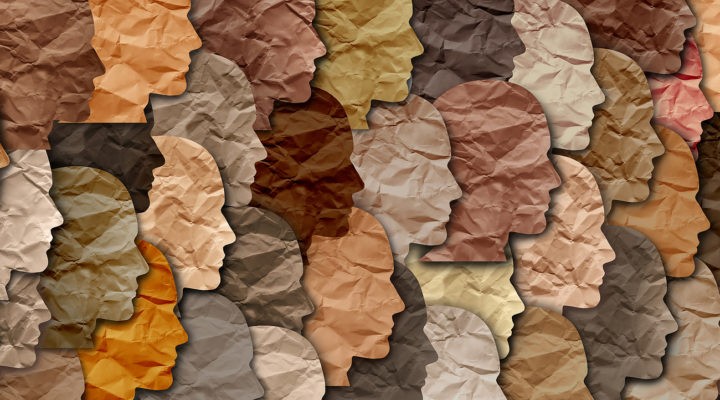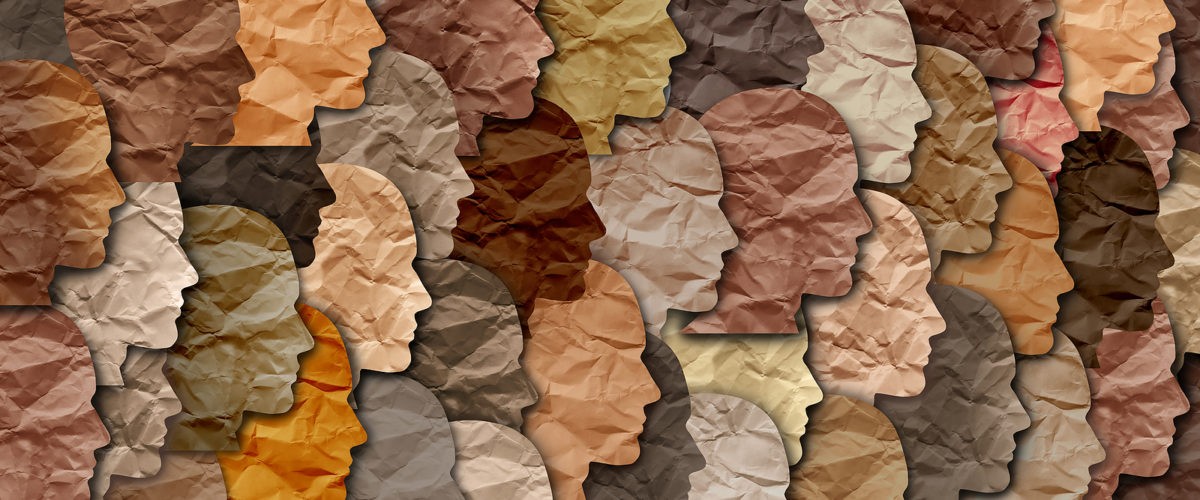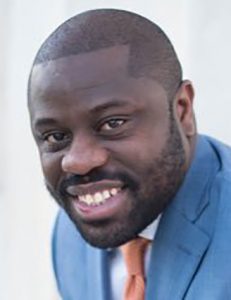On Nov. 3, 2020, I was excited about the opportunity to vote for Joe Biden and his running mate, Kamala Harris, a Black woman, a graduate of my school (Howard), for president and vice president.
After they won, I was proud of myself. I truly believed in the possibility of this country, and I was hopeful we’d be headed to a time when there would be much brighter days ahead. But suddenly, all this optimism was halted.
On Jan. 6, 2021, a mob attacked the United States Capitol and the people in it. Like much of the world, the country, and especially my city, I was shocked and disturbed. I knew people who worked in those buildings, I had been in many of those buildings myself. It was truly a terrible day.
In the midst of the craziness, the soon-to-be president rushed to the TV cameras. He spoke to reassure the nation what was happening wasn’t indicative of who we really are in this country. He spoke of the better angels of our nature and the will of people of good to defeat people of ill. I won’t lie, I was swept up in it.
After watching his inauguration a few weeks later, I really was convinced. Perhaps Biden was right, and it was all about leadership. We saw bipartisanship at its finest. Mike Pence fist-bumped Bill Clinton, Roy Blunt complimented the brilliance of Amanda Gorman, and despite the attacks earlier that month, we successfully completed the transfer of power again.
I thought — naively so — never again do we really need to worry about a threat to our democracy.
I was wrong
I was wrong. Early morning Wednesday, Nov. 6, we woke up to the news that Donald Trump had been reelected president. All his lies, hateful rhetoric, xenophobia, trans-hysteria, racism, misogyny, and all around backwardness had worked — it appealed to enough people, and the man who wreaked so much havoc on the people, communities, values and ideas I loved would be headed back to the White House.
“Initially, all I could feel was grief, then anger, then despair.”
Initially, all I could feel was grief, then anger, then despair. Those feelings linger, but I can’t stay there. I write because these feelings have moved me to memory, study, imagination and action.
I remember I was moved to become a historian of Africa and the African diaspora, specializing in the history of race and white supremacy, because of the results of the 2016 election. At that time, I was working for a different Baptist organization devoted to bringing Black and white Baptists together for reconciliation.
As we worked, I knew our intellectual framework was inadequate to deal with the world we were truly living in. I eventually left that organization and returned to school to study the origins of white supremacy so I could be a part of something more transformative. I was accepted and then enrolled in the History Department at Howard University, where I took courses on the Civil War and Reconstruction, the founding of the United States, the history of the Atlantic slave trade, the history of West Africa and pre-Colonial and post-Colonial Africa. And a wider picture began to emerge.
I began to see my experiences, all the experiences of my life up to that point and everything I had learned about my country and the world, in a new light and with a new perspective. I began to see history isn’t linear, it isn’t a steady march toward progress, that the history of Black folks isn’t a consistent history from slavery to freedom or from light to darkness.
I began to understand that the real history of the country and the world is a history of struggle, of fights, of movements, of attempts by people and forces to make their imprint on the world. I began to see that history, politics and the day-to-day aspects of life never were complete, never fixed, never static. I began to see one could not live in the world thinking that struggle ever was over or that a democratic experiment ever was secured.
New insights
My study of history, Black history, gave me fundamental insights into a new way to practice ministry and live as an activist. It allowed me to see the solutions to my moral and political dilemmas lie in how well I understand the facts before me. That the solutions to my problems lie in how well I know the source of those problems. The solution to my dilemma lies in how well I know this country and how well I use my actual knowledge about this place to struggle for and imagine better possibilities for us all.
In his 2015 letter to his son, turned into a book, Ta-Nehisi Coates wrote:
Back then all I could do was measure these freedom-lovers by what I knew. Which is to say, I judged them against the country I knew, which had acquired the land through murder and tamed it under slavery, against the country whose armies fanned out across the world to extend their dominion. The world, the real one, was civilization secured and ruled by savage means.
“We must understand the power of real knowledge to help us in our struggle and get us beyond this point.”
Coates’ words are perhaps tough to hear, especially for those of us who are idealistic, or forgetful, or lack knowledge about the actual history of this country. But they are necessary words to hear if we are to know what to do next. We must understand the power of real knowledge to help us in our struggle and get us beyond this point.
If I am honest, despite all my training, all my knowledge, all I know, I want to believe something different about this society than is actually true, which is that we live in a society built upon white supremacy, secured by violence and manifested through forms of bigotry such as sexism, xenophobia and homophobia. The most recent election is but another example of that.
The great struggle of our society, the great conflict of our country, the great fight of our democracy, is whether we oppose white supremacy or stand with it. The ultimate powers in this society are geared toward the preservation of whiteness. That is the country we really should know. That’s the fact, that’s the truth. And no amount of diversity, equity or inclusion will fix that if we don’t grapple with, reckon with, learn about and sober up around this very real truth.
And, y’all, this truth doesn’t have to scare us, or silence us, or divide us, or even end us, because history is all about the struggle and what you chose to do in the midst of struggle.
This truth can and should actually wake us up to struggle. It can unify us to fight for what we believe in, it can empower us to make new coalitions, it can inspire us to speak up. It can do all those things because history never is meant to be determinative.
Past and future
Knowing about the past does not dictate the future. But ignoring and not addressing the past means we are bound to repeat its most brutal components. This is why history is meant to be imaginative. But you cannot imagine from a place that does not understand how the real world works.
“Our imagination must take seriously our reality if we ever are to move beyond it.”
So our imagination must take seriously our reality if we ever are to move beyond it. This is why I have tried to lead the Alliance with both attention to history and an emphasis on imagination. This is why we have focused on the abolition of slavery in the 19th century and the mandate to join the abolitionist movement of today. This is why we’ve talked about the history of colonization in the spread of Christianity and the call to truly be partners in ministry in a decolonized way with our friends around the world. This is why we have critiqued a white, male God and have engaged with images of God from the people on the margins, especially Black women.
We have done all this because we have to know where we have come from to actually appreciate the significance of the different place we are going.
The Alliance is different and is going somewhere different. We made a bold proclamation of our imagination long before I became co-director. We decided we wanted to restructure ourselves to fight against racism and white supremacy. We wrote down for all to see that our organization was born in white supremacy, and we were intent on choosing a different path.
That is so powerful, and I know of no other American Christian denomination that has done this to this extent yet. And we can’t stop now. For the stakes are too high. We must continue to see the type of country we live in so we know the type of faith we will need and the type of hope we must become.
Elijah R. Zehyoue serves as co-director of the Alliance of Baptists. He is a graduate of Morehouse College and the University of Chicago and Howard University, where he earned a Ph.D. in African history. His dissertation focused on white supremacy and its impact on the origins of the conflict in Liberia. Additionally, Elijah teaches African and African American Studies at the university level. He previously served on the pastoral staff at Calvary Baptist Church in Washington, D.C. Elijah is from Liberia, West Africa, and grew up in Baton Rouge, La.
Related articles:
Dispirited Christians must prepare to stand in the gap, historians urge | Analysis by Rick Pidcock
What is left is to resist | Opinion by Susan Shaw
Democracy 2025 coalition will challenge Trump and Project 2025



